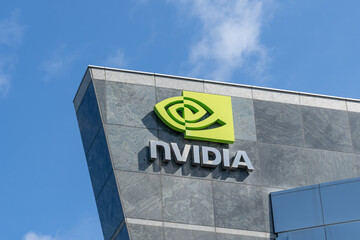NVIDIA's Expansion into Physical AI
Innovations and Initiatives Innovations and InitiativesPosted by NewAdmin on 2025-03-11 09:15:34 |
Share: Facebook | Twitter | Whatsapp | Linkedin Visits: 103

In January 2025, NVIDIA unveiled significant advancements in artificial intelligence (AI) at the Consumer Electronics Show (CES) in Las Vegas. The company's CEO, Jensen Huang, introduced the latest AI processor, Blackwell, now in full production, and announced the upcoming release of GeForce RTX 50-series GPUs and laptops. NVIDIA's focus has expanded to "physical AI," encompassing autonomous vehicles, robotics, and factory automation. The launch of the NVIDIA Cosmos platform aims to accelerate the development of these technologies by providing synthetic data for training models. Ride-sharing giant Uber is among the first adopters of this platform. Additionally, NVIDIA introduced agentic AI blueprints to automate various tasks and updated its Omniverse platform. Partnerships with companies like Toyota, Aurora, and Continental were also highlighted, emphasizing NVIDIA's commitment to advancing AI across multiple industries.
Nvidia also announced that Toyota (TM), Aurora and Continental have joined the list of mobility firms developing and building consumer and commercial vehicle fleets on Nvidia accelerated computing and AI.
Toyota, the world's largest automaker, will build its next-generation vehicles on the Nvidia Drive AGX Orin system-on-a-chip and running the Nvidia DriveOS operating system.
Finally, Nvidia announced a high-end personal computer, called Project Digits, powered by its Nvidia GB10 Grace Blackwell Superchip and running the Linux-based Nvidia DGX operating system. The system will come preconfigured with Nvidia's AI software stack. "It's a Grace Blackwell supercomputer on your desk," Allen Bourgoyne, director of product marketing for Nvidia's enterprise platforms group, said at a media briefing Monday. The new PC is expected to start at $3,000 and will be available in May from Nvidia and its hardware partners. It will be marketed to AI researchers, data scientists and students. With Nvidia Project Digits, developers can run up to 200-billion-parameter large language models for AI applications.
Search
Categories
Recent News
- Hyderabad's Parking Woes: A Digital Solution
- Karnataka School's Six-Month-Long Wormy Rice Crisis
- Pharma's New Powerhouse: Uttar Pradesh's Rise
- Drug Bust Uncovers Medical Students' Ganja Network
- Drug Scandal Shocks Telangana's Medical Community
- Bihar's Medical Marvel: 10kg Tumour Extraction Saves a Life
- Adobe's Firefly: Unlocking Creative AI for Paid Users
- Defence Giant HAL's Shares Plummet Amidst Fighter Jet Competition